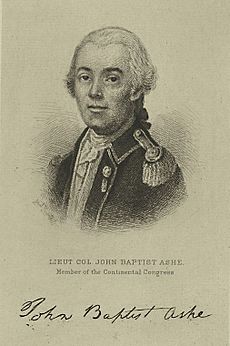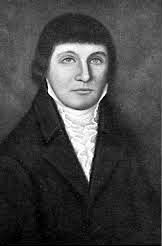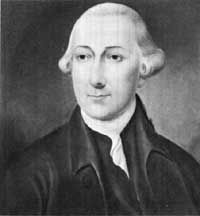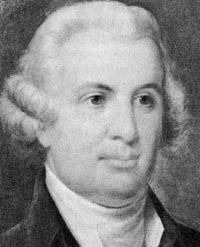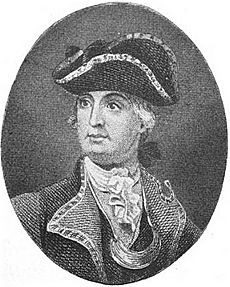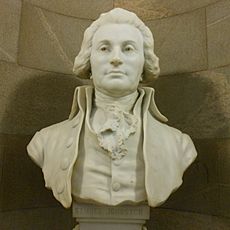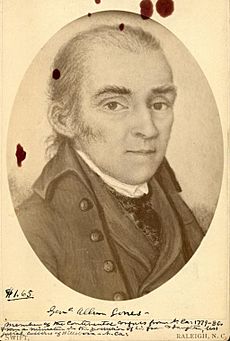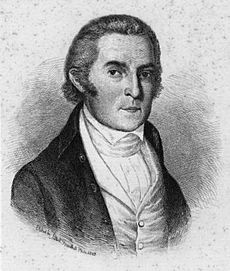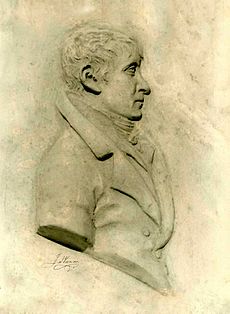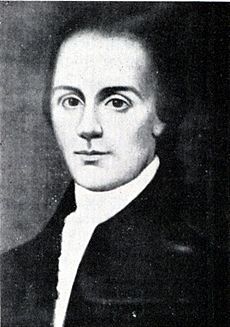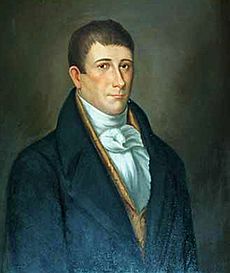First North Carolina Provincial Congress facts for kids
Quick facts for kids First North Carolina Provincial Congress (1774) |
|||||
|---|---|---|---|---|---|
|
|||||
| Overview | |||||
| Legislative body | North Carolina Provincial Congress | ||||
| Jurisdiction | Province of North Carolina | ||||
| Meeting place | New Bern, North Carolina | ||||
| Term | 1774 | ||||
| Members | 73 Delegates (35 counties, 6 not represented; 9 towns/districts, 3 not represented) | ||||
| President/Moderator | John Harvey | ||||
| Sessions | |||||
|
|||||
The First North Carolina Provincial Congress was a special meeting held in New Bern, North Carolina, from August 25 to August 27, 1774. It was the first of five important meetings that helped North Carolina prepare for the American Revolution. These meetings were like a temporary government. They helped create a new government structure, printed money to pay for their efforts, and organized an army to defend the colony. John Harvey was the leader of this first Congress. These early congresses were very important. They set the stage for the first official meeting of the North Carolina General Assembly on April 7, 1777.
What Was the Committee of Correspondence?
A young American patriot named Josiah Quincy, Jr. visited North Carolina in 1773. He met with Cornelius Harnett in Wilmington. They talked about creating a "Committee of Correspondence." This committee's main goal was to share news and revolutionary ideas among the different colonies.
The North Carolina Committee of Correspondence officially started in December 1773. Even though Cornelius Harnett wasn't there, he was chosen as its chairman. Other important members included John Harvey, Robert Howe, Richard Caswell, and William Hooper.
These committees in each colony had a big job. They informed people about the threats from Great Britain. They also shared important news from big cities with people living in the countryside. Since news traveled slowly by letters or pamphlets, the committees made sure the information was correct. They also helped organize the election for the first Provincial Congress in North Carolina.
Why Did They Meet? Key Decisions of the Congress
The delegates at the First North Carolina Provincial Congress met in 1774 because they were upset. They were reacting to events like the Boston Tea Party and new laws from Britain called the Intolerable Acts. These laws were seen as unfair punishments for the colonies.
On August 27, 1774, the Congress passed several important resolutions. These decisions showed how the people of North Carolina felt about British rule. Here are some of the main points they agreed on:
- Loyalty to the King, but with Rights: They stated they were loyal to King George III. However, they also insisted on their rights as Englishmen. They believed they should have the same freedoms as people living in Great Britain.
- No Taxation Without Consent: A key idea was that no one should be taxed without their permission. They believed that only their own local assemblies, not the British Parliament, had the right to tax them. This was a core principle of their fight for freedom.
- Opposing Unfair Taxes: They strongly disagreed with taxes on goods like tea. They saw these taxes as illegal and unfair. They believed the British Parliament was trying to force them to accept its power to tax them without their consent.
- Supporting Boston: The delegates felt that the problems in Boston, especially the Boston Port Act which closed the port, were an attack on all colonies. They believed Boston was being punished for standing up for American rights. They decided to help Boston.
- Protecting Justice and Rights: They said that trials should happen where the crime occurred, with local juries. They were against new British laws that allowed officials to be sent to Great Britain for trial. They saw this as unfair and dangerous.
- Boycotting British Goods: To protest, they decided to stop importing goods from Great Britain after January 1, 1775. They also agreed not to buy any British goods that arrived after that date.
- Stopping Exports: If their problems with Britain weren't fixed by October 1, 1775, they would stop exporting products like tobacco, pitch, and tar to Great Britain.
- Ending Slave Imports: They resolved not to import or buy any enslaved people after November 1, 1774.
- No East India Tea: They decided not to use East India Tea in their homes after September 10, 1774. Anyone who didn't follow this was seen as an "enemy to their Country."
- Fair Prices: Merchants were asked not to raise prices on their goods because of the new import rules.
- United Colonies: They agreed to stop all trade with any colony, city, or person who refused to join the general plan agreed upon by the Continental Congress.
- Supporting a General Congress: They fully supported the idea of a big meeting, called the Continental Congress, in Philadelphia on September 20, 1774. This meeting would discuss the problems facing British America.
- Choosing Delegates for Continental Congress: They chose William Hooper, Joseph Hewes, and Richard Caswell to represent North Carolina at the Continental Congress. They gave them the power to make decisions for the province.
- Raising Money for Delegates: Each county was asked to raise twenty pounds to help pay for the expenses of the delegates attending the Continental Congress.
- Future Meetings: They decided that John Harvey, or Samuel Johnston if Harvey was unavailable, could call future provincial meetings if needed.
- Instructions for Delegates: They gave clear instructions to their delegates for the Continental Congress. These included expressing loyalty to the King but also defending their rights, especially the right to not be taxed without their consent. They also wanted to stop all imports and exports to Great Britain if their rights were not recognized.
The delegates thanked John Harvey for his leadership.
The following people signed these resolutions: JOHN HARVEY, Moderator, Richard Cogdell, Wm Thomson, Solomon Perkins, Nathan Joyner, Sam. Jarvis, Sam. Johnston, Thos. Benbury, Thos. Jones, Thos. Oldham, Thos. Hunter, Ferqd Campbell, M. Hunt, Nick Long, Benj. Williams, William Hooper, Wm Cray, Thos. Harvey, Edward Everigin, Edward Salter, Sam. Young, Joseph Spruil, Joseph Hewes, John Geddy, Sam Spencer, Wm Thomas, Roger Ormond, Thos. Respess, Jr, Wm Salter, Walter Gibson, Wm Person, Green Hill, R. Howe, John Campbell, James Coor, Sam. Smith, Willie Jones, Benj. Patten, Allen Jones, Benj. Harvey, J. Whedbee, Joseph Reading, Wm Kennon, David Jenkins, Abner Nash, Francis Clayton, Edward Smythwick, Lemuel Hatch, Thomas Rutherford, R. Caswell, Wm McKinnie, Geo. Miller, Simon Bright, Thos Gray, Thos Hicks, James Kenan, William Dickson, Thos. Person, Rothias Latham, Needham Bryan, John Ashe, Thomas Hart, Andrew Knox, Joseph Jones, John Simpson, Moses Winslow, Robert Alexander, I. Edwards, William Brown, Jeremiah Frasier
Who Were the Delegates?
The people who attended this Congress were called "deputies of the inhabitants of this province." This means they were chosen to represent the people living in their areas. The table below lists these delegates and the county or town they represented. Some of these delegates also served in the Continental Congress, which was a very important meeting for all the colonies.
| County/Town Representing | Delegate |
|---|---|
| Anson | Samuel Spencer |
| Anson | William Thomas |
| Beaufort | Roger Ormond |
| Beaufort | Thomas Respess, Jr. |
| Bertie | John Campbell |
| Bladen | William Salter |
| Bladen | Walter Gibson |
| Brunswick | Robert Howe |
| Bute | Green Hill |
| Bute | William Person |
| Carteret | William Thompson |
| Carteret | Solomon Shepard |
| Chatham | not represented |
| Chowan | Thomas Benbury |
| Chowan | Thomas Hunter |
| Chowan | Samuel Johnston |
| Chowan | Thomas Jones |
| Chowan | Thomas Oldham |
| Craven | Richard Cogdell |
| Craven | James Coor |
| Craven | Lemuel Hatch |
| Craven | Joseph Leech |
| Cumberland | Farquard/Farquhard Campbell |
| Cumberland | Thomas Rutherford |
| Currituck | Samuel Jarvis |
| Currituck | Solomon Perkins |
| Currituck | Nathan Joyner |
| Dobbs | Richard Caswell |
| Dobbs | William McKinnie |
| Dobbs | George Miller |
| Dobbs | Simon Bright |
| Duplin | William Dickson |
| Duplin | Thomas Gray |
| Duplin | Thomas Hicks |
| Duplin | James Kenan |
| Edgecombe | not represented |
| Granville | Memucan Hunt |
| Granville | Thomas Person |
| Guilford | not represented |
| Halifax | Willie Jones |
| Halifax | Nicholas Long |
| Hertford | not represented |
| Hyde | Rotheas Latham |
| Hyde | Samuel Smith |
| Johnston | Needham Bryan |
| Johnston | Benjamin Williams |
| Martin | Edmund Smithwick |
| Mecklenburg | Benjamin Patten |
| New Hanover | John Baptista Ashe |
| New Hanover | William Hooper |
| Northampton | Allen Jones |
| Onslow | William Cray |
| Orange | Thomas Hart |
| Pasquotank | Joseph Jones |
| Pasquotank | Edward Everagin |
| Pasquotank | Joseph Reading |
| Perquimans | Benjamin Harvey |
| Perquimans | John Harvey |
| Perquimans | Thomas Harvey |
| Perquimans | Andrew Knox |
| Perquimans | John Whedbee, Jr. |
| Pitt | Edward Salter |
| Pitt | John Simpson |
| Rowan | Moses Winslow |
| Rowan | Samuel Young |
| Surry | not represented |
| Tryon | David Jenkins |
| Tryon | Robert Alexander |
| Tyrrell | Joseph Spruill |
| Tyrrell | Jeremiah Frazier |
| Wake | not represented |
| Edenton (town) | Joseph Hewes |
| New Bern (town) | Abner Nash |
| New Bern (town) | Isaac Edwards |
| Wilmington (town) | Francis Clayton |
| Bath (town) | William Brown |
| Halifax (town) | John Geddie/Gettie |
| Hillsborough (town) | not represented |
| Salisbury (town) | William Kennon |
| Brunswick (town) | not represented |
| Campbellton (town) | not represented |
 | George Robert Carruthers |
 | Patricia Bath |
 | Jan Ernst Matzeliger |
 | Alexander Miles |


